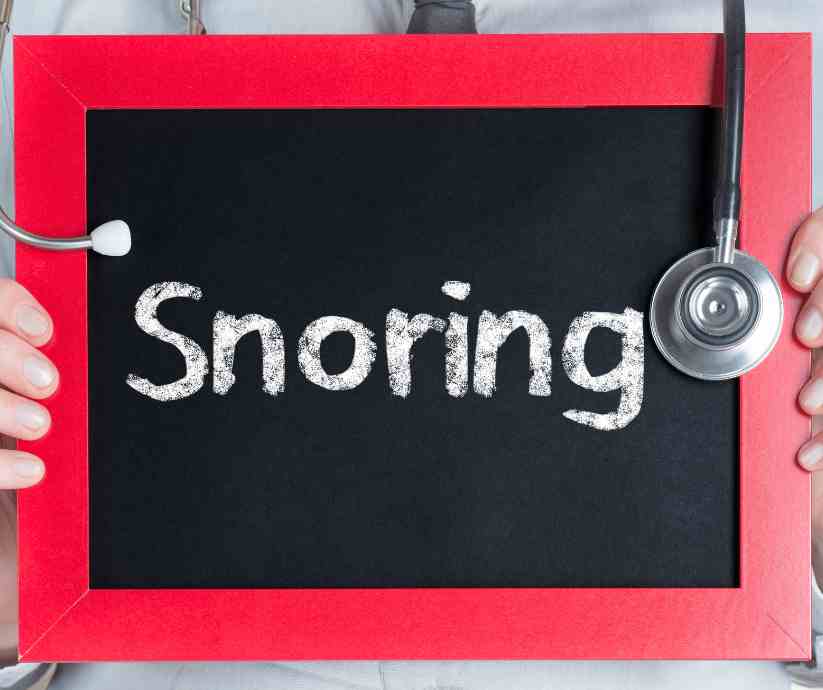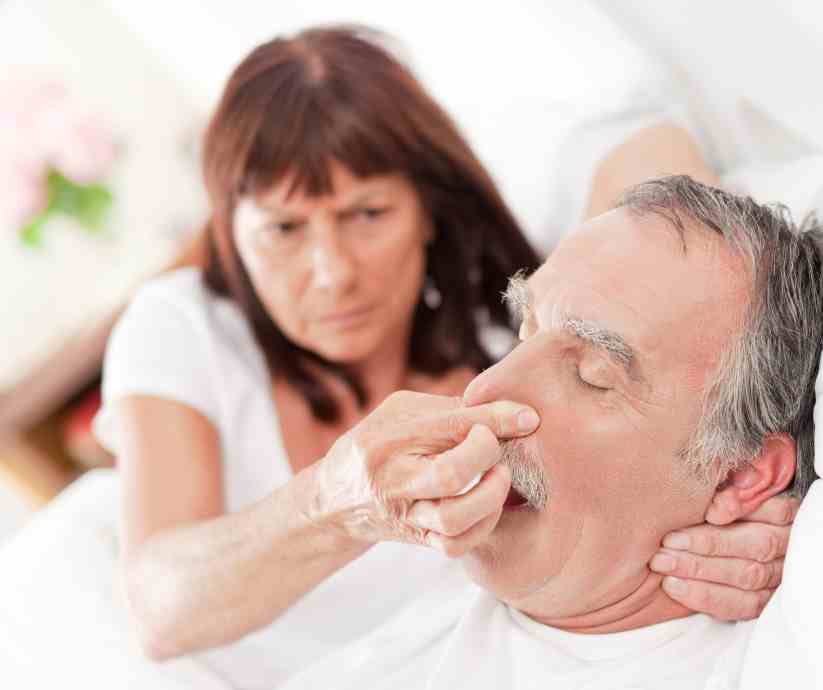Snoring may seem like a harmless nighttime annoyance, often leading to jokes and elbow nudges, but it can actually be a red flag for serious health risks. Beyond disturbing your partner’s sleep, chronic snoring may be a sign of an underlying health condition that warrants attention. We delve into the lesser-known health risks associated with snoring, shedding light on the importance of addressing this seemingly innocuous habit.
Understanding Snoring
Snoring occurs when airflow is partially obstructed during sleep, resulting in the vibration of throat tissues. Snoring sometimes is common and typically not dangerous, but continuous snoring requires it to be treated properly. It typically implies sleep apnea, a medical disorder characterized by pauses in breathing during sleep. Sleep apnea may give rise to a variety of health concerns if untreated.

Sleep Apnea and its Implications
A harmful illness named sleep apnea may be connected to various medical risks. It disturbs the body’s normal sleep cycle and prevents it from obtaining the restorative sleep it needed. Sleep apnea that goes untreated people are prone to suffer from cardiovascular diseases like elevated blood pressure, heart attack, and dementia. Breathing gaps often place stress on the cardiovascular system, rising blood pressure and possibly damaging blood vessels as time passes.
Impairment of memory and mental wellness
Snoring & breathing disorders can have an important impact on mental health in addition to physical health issues. The loss of sleep caused by sleep apnea may render feelings of hopelessness and anxiety worse. Furthermore, inadequate sleep can impact cognitive skills like concentration, recall, and perception. Morning exhaustion and tiredness may hinder performance and enhance the risk of disasters.

Relationship and Life’s Worth
Snoring not only affects the snorer but also takes a toll on their bed partner’s sleep quality and overall well-being. Sleep disruption due to snoring can strain relationships, leading to increased irritability and decreased intimacy. Quality of life may be compromised for both the snorer and their partner, impacting their physical and emotional health.

Seeking Solutions
Developing practical solutions starts with identifying the potential risk to health caused by snoring. In order to find out if they have sleep apnea or any underlying illnesses, those who breathe regularly should see a physician. Along with surgical treatments like Continuous Positive Airway Pressure (CPAP) equipment or oral gadgets that are sometime used, changes to lifestyle like shedding pounds and postural therapy offer additional options for curing sleep apnea.
One significant health risk associated with snoring is sleep apnea, a potentially serious sleep disorder. RTOs can educate learners about the connection between snoring and sleep apnea, emphasizing the importance of seeking professional diagnosis and treatment. By providing information on the symptoms and consequences of sleep apnea, RTOs empower learners to identify potential sleep-related issues and take necessary action.
They can incorporate information on healthy sleep habits into their RTO Training Materials, emphasizing the importance of maintaining a consistent sleep schedule, creating a conducive sleep environment, and practicing relaxation techniques before bed. By educating learners on the significance of quality sleep and its impact on overall health, RTOs promote a culture of well-being within the workforce.
Snoring can seem not dangerous, but it can be a sign of deeper medical issues. It’s crucial to keep in mind the risks presented by continuous snoring, specifically sleep apnea. Individuals may lower their chance of having medical issues, have more restful nights, safeguard their cardiovascular health, and boost their overall health by receiving the appropriate diagnosis and therapy. Don’t let snoring mask the dangers lurking beneath—address it for a healthier tomorrow.
